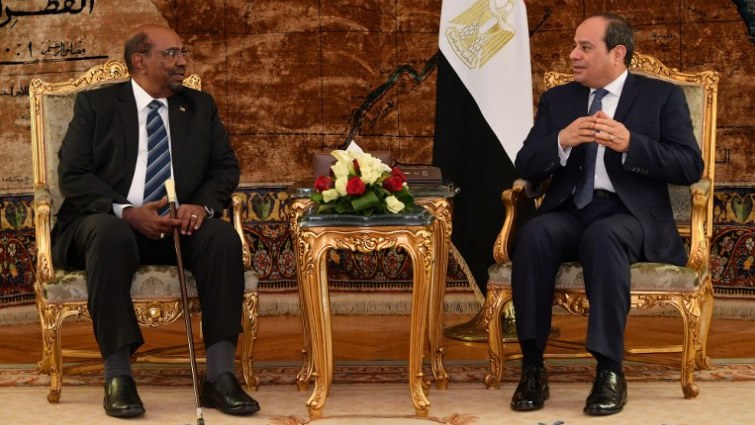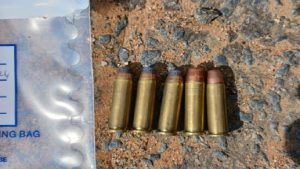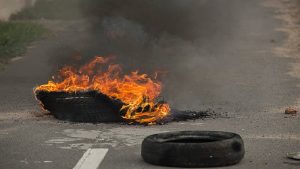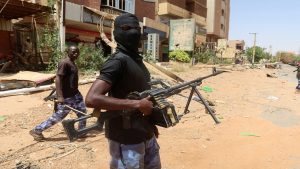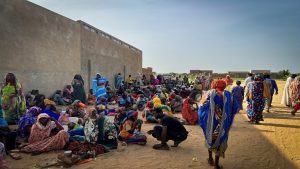Sudanese police fired tear gas at protestors in Khartoum and its twin city of Omdurman on Sunday, witnesses said, after organisers called for further demonstrations against President Omar al-Bashir’s three decades of rule.
Bashir, on a visit to Cairo to meet his Egyptian counterpart Abdel Fattah al-Sisi, said the media were exaggerating the size of the problems he faced at home.
Deadly protests sparked by a government decision to raise the price of bread have rocked the east African country for weeks.
The demonstrations have mushroomed into nationwide rallies against the government of Bashir, who swept to power in 1989 in an Islamist-backed coup.
Officials say 30 people have died in the violence since the protests first erupted on December 19 in the farming town of Atbara, before spreading to Khartoum and other regions.
Rights groups say more than 40 people have been killed.
On Sunday, protesters came onto the streets in Khartoum and its twin city of Omdurman to hold sit-ins in several squares, responding to a call by the Sudanese Professionals Association which is leading the protests.
But a massive deployment of riot police and security agents prevented them from gathering at several locations, witnesses said, and the protesters later began rallies in several residential areas of Khartoum and Omdurman.
“You’re police, you have to protect us,” demonstrators shouted as riot police cordoned off several squares in Khartoum and Omdurman, where they had planned to hold sit-ins.
Police surrounded many squares and filled some with muddy water to prevent demonstrators from gathering, witnesses said.
The SPA backed by several opposition political parties said in a joint statement that despite the deployment of security forces, protesters managed to gather in 11 squares and also stage six rallies in residental areas of Khartoum and Omdurman during the day.
“When we came to the square for a sit-in, we saw security forces had surrounded it,” said a female demonstrator, who did not identify herself for security reasons.
“We then decided to hold a rally in a nearby neighbourhood, but there too the police hit us with tear gas.”
Late on Sunday, eight more demonstrations were held in Khartoum and Omdurman but police confronted them with tear gas, witnesses said.
The SPA had called for sit-ins on Sunday in more than 20 squares in Khartoum and Omdurman.
In a statement issued late on Sunday, the SPA said rallies were also planned on Monday in Darfur, Nuba mountains, Blue Nile, in camps of internally displaced people and some other provinces “to show our people’s rejection of the dictator”.
Authorities led by the country’s National Intelligence and Security Service have cracked down on protesters, opposition leaders, activists and journalists in a bid to prevent the spread of demonstrations.
On Sunday, security forces arrested four journalists, including one from the country’s war-torn region of Darfur, the non-government Sudanese Journalists’ Network said.
Sudan has ranked 174 out of 180 on the World Press Freedom index every year from 2015 to 2018.
While bread price hikes sparked the first protests, anger has been mounting for years over growing economic hardship and deteriorating living conditions.
That ire has now spilt onto the streets, with protesters chanting their main slogan: “freedom, peace, justice!”
Bashir has remained steadfast in rejecting calls to resign.
On Sunday, he said the media were exaggerating the size of his problems.
“There is a problem (in Sudan), we are not claiming that there is not. But it’s not of the size or extent raised in some media,” Bashir said standing next to Sisi at a news conference after their meeting in Cairo.
The protests were “an attempt to clone the so-called Arab Spring in Sudan”, he said, referring to similarities between the slogans and use of social media in uprisings that hit the region in 2010-2011.
Angry crowds of Sudanese protesters have been seen in videos posted online chanting “The people want the downfall of the regime,” a signature slogan of the Arab Spring.
Bashir and other Sudanese officials have blamed the country’s overall economic woes on the United States.
Washington lifted its trade embargo on Sudan in October 2017 after two decades of bruising economic punishment, but that has failed to fix the country’s financial situation.


